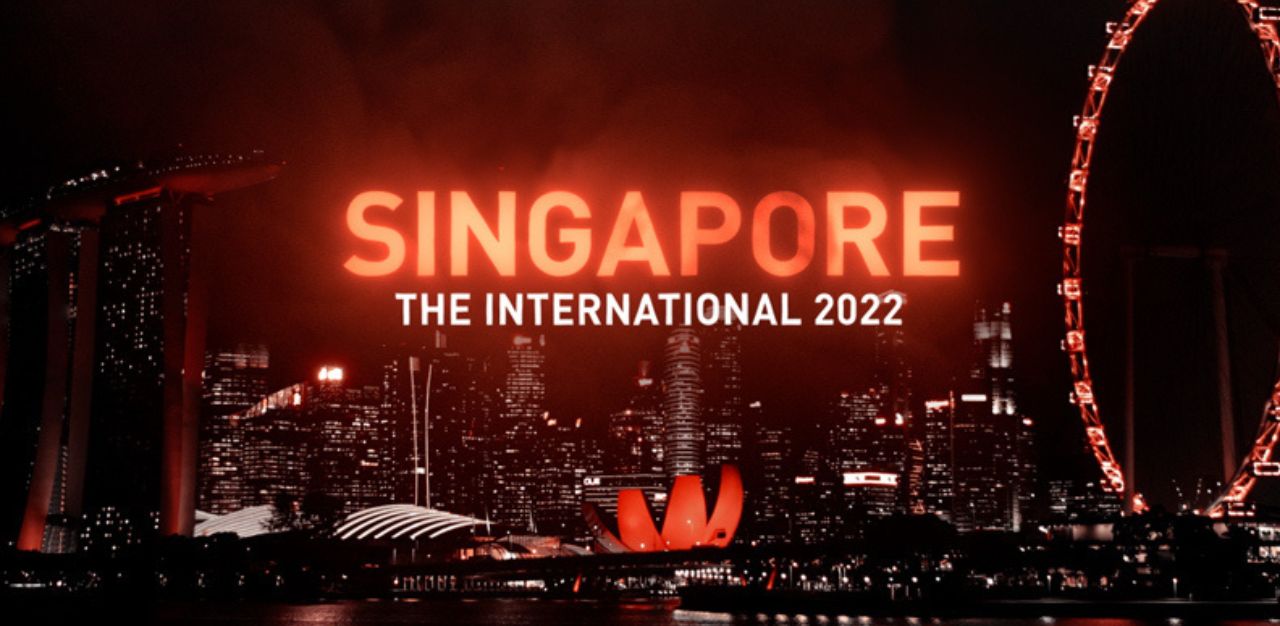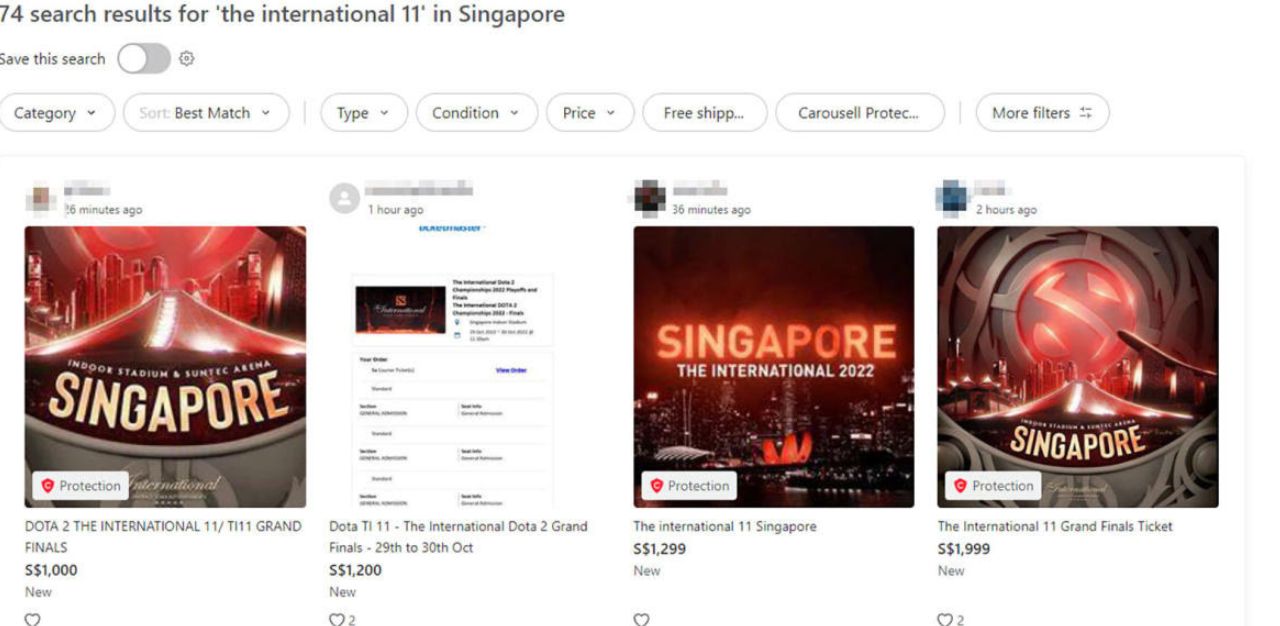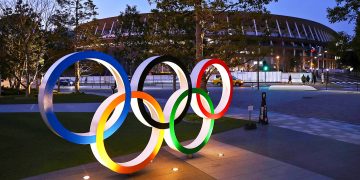The old saying the early bird catches the worm has evolved in the digital marketplace. It is now the fastest finger swipes the ticket. Well, at least for the upcoming Dota 2 The International 11 (TI11)
On 22 May, developer of the popular multiplayer online battle arena (MOBA) video game Dota 2 Valve Software announced The International 11, its annual world championship tournament, will be held in Singapore from 20 to 30 October.
It was not surprising fans across the region were in a tizzy when the news broke. According to Niko’s research, esports viewership in Asia grew to more than 675 million fans in 2021. With growth continuing into 2022, esports quickly became one of the most popular sports in the world, attracting massive attention and participation, and projected to reach US$620.90m in value this year.
Esports was first introduced as a demonstration sport at the 2018 Asian Games, and went on to debut in the South East Asian (SEA) Games in 2019 before returning in 2022. Internationally too, esports has been mooted for a bid at the 2024 Olympics in Paris. The decision for Singapore to host the The International 11 marks the first time an event of this scale will take place in South East Asia.
But the joy by fans for the opportunity to catch the games live was short lived by just mere minutes after the tickets went on sale on 13 August.
They were snapped up almost instantly and the threads on reddit lit up as sellers started reselling tickets in online marketplaces like Carousell, for up to 10 times the original retail price.
Hopeful buyers outside Singapore were equally dismayed as the surge in pricing threw a curveball to their travel plans to watch the long awaited event.
A fan travelling to attend the event and Reddit user juggernautomnislash, expressed his disappointment on the forum.
“I didn’t have a chance to even buy a ticket. I watched the clock count down from 55 minutes. Watched it ticked down from 10 seconds and was instantly 3,500th in queue. Got in after 11 minutes. By then all tickets for all days were sold out. They’re already being scalped on Carousell. I’m really disappointed. This is the closest TI has ever been for an Aussie….” said the user.

According to the terms and conditions of the ticket sale and entry, the resale of tickets for the esports event are prohibited. Even with the threat of being denied entry, the aftermarket sale of tickets is still going strong.
Fair market value
Carousell user skyfarrow share’s juggernautomnislash’s sentiments and was “upset” by the outcome of things.
“I feel really disappointed since it shows how greedy people can be. It’s also upsetting as it is an international event that has never been in South East Asia and many of the locals cannot attend, let alone the foreign fans who wanted to come,” she says.
Despite feeling angry about the resale of tickets , the user says she is willing to pay up to S$120 to attend the playoff and S$700 for a grand final ticket. She is also concerned about possibly being denied entry so she plans to look for a seller who is also attending the event so that they can “deal on the day itself” and “should there be any issues, the seller can help settle”.
“The risk of getting scammed is high, so I don”t want to commit early as well,” she adds.
On 4 May, The Singapore Police Force released an advisory to remind the public “to be discerning online shoppers, especially when purchasing tickets for events or concerts from online third-party resellers”, especially during a time when the nation embraces the return of large-scale physical events and concerts.
E-commerce scams were the third-most common scam in Singapore in 2021, with 2,707 cases reported and $5.8 million cheated.
Carousell user surfingpikachu, however, is not too concerned about buying a resale ticket.
“I don’t think denied entry has been done even for other concerts or events in the past. Maybe I’m wrong, but Dota 2 TI won’t be an exception,” he says.
The user points out that the resale market is enabled not only because of the existence of willing sellers, but also willing buyers.
“The asking prices from sellers are ridiculously high, two to three times the original price, but apparently there are many willing buyers so we can’t complain much, it takes two to tango,” he says.
The user adds that he is willing to pay S$200 for a playoff ticket and S$700 for a grand final ticket.
The lack of fear about denial of entry to the games was also echoed by sellers of the tickets.

A ticket seller, who asked to be anonymous, says that “the ticketing agent has no interest in preventing resales”. The seller says that he is intending to go to the event himself but is testing the demand and would forsake attending if he could make a “healthy profit”.
Similarly, another ticket seller, who did not wish to give his name, says that his group of friends were planning to attend the event and were “lucky” to secure extra tickets. The user was “trying his luck” on the marketplace but would sell the ticket to a close friend who wished to go.
The user says that the blame received by “scalpers” is similar to those at other events and products. The user adds that there is “no control” over such markets and complaining is “useless”. Buyers can always choose not to purchase if the prices are “not justifiable”.
The International 11
This is not the first time scalping practices have made waves in Singapore.
In May 2017, category one tickets for British singer Ed Sheeran were selling for up to S$13,516.17 each on online ticket marketplace Viagogo, a whopping 54 times more than the original S$248 price.
In an article on the economics of scalping, authors Paul Crosby and Jordi McKenzie from the Department of Economics at the Macquarie University said that “Scalpers thrive off such conditions as it presents them with an arbitrage opportunity that would never have existed in a world where tickets were plentiful and priced in line with demand.”
The authors also commented on the opportunity for scalping as “event promoters are risk averse, preferring the certainty of a guaranteed sell-out over the uncertainty of potentially over-valuing tickets” and the downsides to the market where “enterprising scalpers may be encouraged to buy up large proportions of available tickets in order to maximise their profits”.
Scalping is sadly nothing new and as the researchers pointed out, a problem of economics as well, which sellers and organisers have combated with for a long time.
Popular theatre venue West End in London, has been notorious for scalpers who would buy tickets at retail price and charged mark ups for willing and desperate tourists to watch their favourite shows.
In a 2017 production of Hamilton, producer Cameron Mackintosh attempted to thwart scalpers at the London venue by using paperless tickets. Mackintosh’s anti-scalping measure, which requires ticket buyers to use a bank card to buy electronic tickets, is designed to block the scalpers who buy up premium seats, then offer them for re-sale at massively inflated prices.
However, the tickets still ended up being offered on resale websites for £4,788 or more, a healthy profit from £200, the most expensive regular-priced premium ticket for the show.
American rock band Rage Against the Machine deployed a different tactic against scalpers in a 2020 concert. The band became a reseller by holding back ten per cent of allotted tickets. Rather than sell those tickets at exorbitantly high prices at a later date, the band added a nominal fee to the base price of those remaining tickets and gave the extra profit to charities and activist organisations.
Elsewhere other added security measures like photo and personal identification are utilised to deter scalping practices. But in the case of esport in Singapore, it appears that the tickets will be going to the highest bidders.
Another seller, who does not wish to be named, says that he was “lucky” to purchase a ticket through balloting, but decided to sell it collectively with his group of friends,“ seeing the huge demand for it”.
“The profit was enticing and thus I made the post to try and test the waters,” the user says.
He added that most bidders for his listed tickets have negotiated for lower prices and he has yet to secure any deals.
“Contrary to what haters like to say ‘Don’t buy from scalpers let them waste the ticket’, it’s not like we can’t eventually attend the event ourselves. Like I said I was testing the waters and might end up going at the end of the day,” the user adds.
RELATED: The Ethics of Scalping (or Lack Of)
Join the conversations on TheHomeGround Asia’s Facebook and Instagram, and get the latest updates via Telegram.














